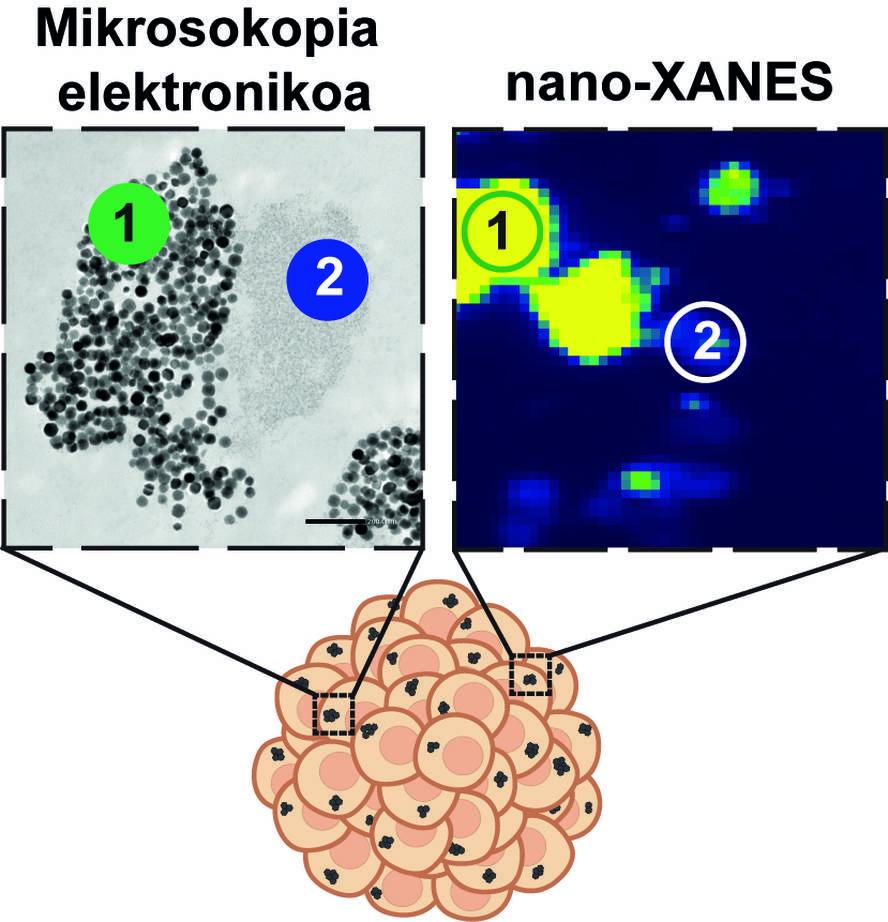They investigate the degradation of magnetosomes in human cells.

The Magnetism and Magnetic Materials Group (GMMMT) has analyzed the degradation of magnetosomes in a model of lung carcinoma. The result has been considered very useful not only to better understand the process of degradation of magnetosomes, but also to understand the origin of magnetic nanoparticles that appear in some neurodegenerative diseases and their usefulness in treating cancer.
In fact, GMMMT researcher Alicia Gascón Gubieda has explained that magnetosomes are magnetite nanoparticles that synthesize some bacteria that seem to be very useful for medicine, especially in the diagnosis and treatment of cancer. “But we still don’t know what happens to magnetosomes inside human cells, to see if our cells can save or transform these nanoparticles,” he warned.
To do this, they have analyzed the degradation of magnetosomes in a model of pulmonary carcinoma for 36 days: “We’ve used a new technique called nano-XANES, which is only available in some large particle accelerator facilities. Thanks to this technique we have been able to analyze what happens with magnetosomes in the different parts of the cell.”
From the results obtained through it, two findings have been highlighted: “On the one hand, we’ve seen magnetosomes degrade, that is, they shrink in size and their magnetite becomes maghemite. But in this process iron ions are released into the cell that are harmful to the célula.Por on the other side, we've seen that human cells trap these ions and re-produce magnetite into a protein called ferritin, probably to prevent that damage."
So they've shown that human cells have the ability to degrade and regenerate magnetite. They even think that the ability to produce magnetite is linked to the oxidative stress of cells. The researcher emphasizes the special interest this has: “Magnetic nanoparticles have been found in the brains of patients with neurodegenerative diseases. We therefore believe that our study will help to better understand the biological origin of magnetite nanoparticles.”
On the other hand, it has been observed that the problem of the degradation of magnetosomes is slow, and as cells vibrate magnetite, magnetosomes can be useful for the treatment of cancer in the long term and in doses menores.La research has been published in the journal Journal of Nanobiotechnology, in its open edition.





